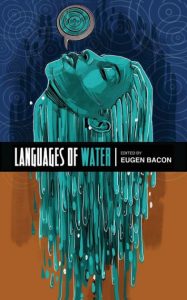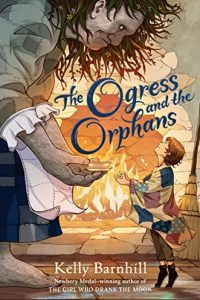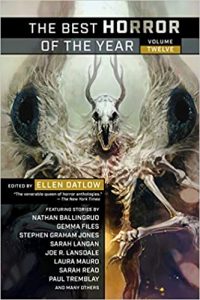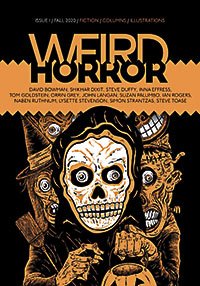Archita Mittra Reviews Languages of Water by Eugen Bacon, ed.
 Languages of Water, Eugen Bacon, ed. (MVMedia 979-8-98573-366-2, $21.99, 222pp, tp) September 2023.
Languages of Water, Eugen Bacon, ed. (MVMedia 979-8-98573-366-2, $21.99, 222pp, tp) September 2023.
Languages of Water, as its title suggests, delves into the concerns posed by water scarcity and climate change, in not one but many languages, but it isn’t a conventional anthology where a reader might expect a careful selection of short fiction united by a common theme. Instead, Eugen Bacon’s book is a careful and thoughtful exercise in what international collaboration in the creative fields can look like. Anchored by Bacon’s tale ‘‘Where the Water Stops’’, the volume collects stories, poems, and personal essays that respond to this piece, alongside a few illustrations and several translations in Bengali, Cantonese, French, Malay, Swahili, and Vietnamese. Thus, it celebrates how stories can act as a bridge across various borders and cultures, even as they change form and meaning when transplanted from one context to the other.
Bacon’s short story is a particularly hard-hitting piece, set in a world where water is so scarce that people have turned to harvesting blood to survive. This societal embrace of vampirism is relayed to the reader via multiple perspectives, highlighting how differences in class and privilege affect the difficulty and availability of choices one can make. In one instance, a rich woman expressing her irritation at the trapped villagers whose blood she drinks to stay alive is sharply contrasted with the plight of a poor husband who must decide whether he would sacrifice his wife or children. Thus, with a few, deft strokes, Bacon succeeds in painting a gritty, dystopian portrait of where society is headed. Following this powerful and poetic opener, we have multiple translations of this same tale, including one by Sudeep Chatterjee in my mother tongue (Bengali) that I felt was rather poignant, reminding me of the familial anecdotes of the Bengal famine of 1943, engineered by the British, that I heard while growing up.
The several poems in the anthology are similarly themed, playing with various forms – from the free verse to the haiku – although none seemed particularly memorable to me. The other writers here offer their own spin on water scarcity and global warming, with some stories set in the same world but a different location, offering an interesting counterpoint to how different communities tackle the same problems. Of these, Andrew Hook’s ‘‘So Close to Home’’ imagines a society where people slowly adjust to consuming water polluted with chemicals, as there is no other alternative. Oz Hardwick’s ‘‘Stories from the Sandpaper Tongue’’ reads like an experimental prose poem, while ‘‘Old Water’’ by Tamantha Smith is a horror-esque riff on the ‘fountain of youth’ motif but with zombies.
Perhaps, more than the creative pieces themselves, it is interesting for readers to explore the threads of creative inspiration and intertextuality binding these fiction and non-fiction works together. For instance, in Clare Rhoden’s wryly humorous tale, ‘‘Handsome Fox Thirsts for More’’ the titular fox contemplates killing a pregnant fox for his own sustenance – echoing a choice made by another character, in another tale – but is instead, in for a dark surprise. Francesca Rendle-Short’s contemplative poem ‘‘Water Syntax’’ dives deep into the etymological roots of the word ‘‘water,’’ across multiple languages – encapsulating in verse what Bacon’s larger project has set out to achieve. In E. Don Harpe’s ‘‘Downpour’’, written in a dialectical English, an inquisitive child asks a lot of questions to a grown-up; it’s a story about the power of prayer, and despite the grimness of the setting, manages to be both delightful and tongue-in-cheek.
A personal favorite among the tales is Nuzo Onoh’s ‘‘Black Queen’’, also the longest story in the collection; it follows a Things Fall Apart trajectory, detailing how a small African settlement slowly loses its ancestral traditions and ties to the environment, swept by encroachment of modernity and ultimately drowning in its river’s revenge tide. It’s deliciously folkloric and vibrant, told through the voice of a woman whose dire warnings are unheeded by her community, and who becomes the sole survivor of her tribe, as she’d married and moved to a different settlement before the environmental tragedy befell her hometown.
Among the essays, there’s critical commentary on Bacon’s story, along with personal anecdotes from the contributing writers about the creative process and navigating climate crises. Andrew Hook’s essay describes how he came up with the theme, title, and plot threads of his own story, written as a response to Bacon’s. Meanwhile, Clare Rhoden’s piece argues how ‘‘climate change does not fall equally on Earth’s children, and not merely by accidents of geography’’ and emphasizes that Bacon’s cli-fi story is actually about ‘‘poverty and exploitation’’ – perhaps a reminder that the dystopia feared by privileged folks is already a stark reality inhabited by the marginalized in various parts of the globe. Finally, Bacon’s concluding essay references Barthes’s death of the author and provides the intention and context for his experimental collection, one where readers and writers respond to a written piece by bringing their unique insights, experiences, and creativity to a text, and like the flowing nature of water itself, encourage fluidity and multiplicity of meanings.
Languages of Water was born out of an experiment to explore how a particular story, and the conversations around it, can inspire other stories in different contexts. Although the volume might, to me, appear a tad self-indulgent at times, it’s a curious document that illustrates how speculative fiction in general and the burgeoning field of cli-fi in particular can unite writers across borders to inspire open conversation, collaboration, and community – the same vital tools we need to fight the ongoing climate crisis.
Archita Mittra is a writer and artist, with a fondness for dark and fantastical things She completed her B.A (2018) and M.A (2020) in English Literature from Jadavpur University and a Diploma in Multimedia and Animation from St. Xavier’s College.
When she isn’t writing speculative fiction or drawing fanart, she can be found playing indie games, making jewelry out of recycled material, reading a dark fantasy novel, baking cakes, or deciding which new Tarot deck to buy.
She lives in Kolkata, India, with her family and rabbits.
This review and more like it in the August 2023 issue of Locus.
 While you are here, please take a moment to support Locus with a one-time or recurring donation. We rely on reader donations to keep the magazine and site going, and would like to keep the site paywall free, but WE NEED YOUR FINANCIAL SUPPORT to continue quality coverage of the science fiction and fantasy field.
While you are here, please take a moment to support Locus with a one-time or recurring donation. We rely on reader donations to keep the magazine and site going, and would like to keep the site paywall free, but WE NEED YOUR FINANCIAL SUPPORT to continue quality coverage of the science fiction and fantasy field.
©Locus Magazine. Copyrighted material may not be republished without permission of LSFF.







